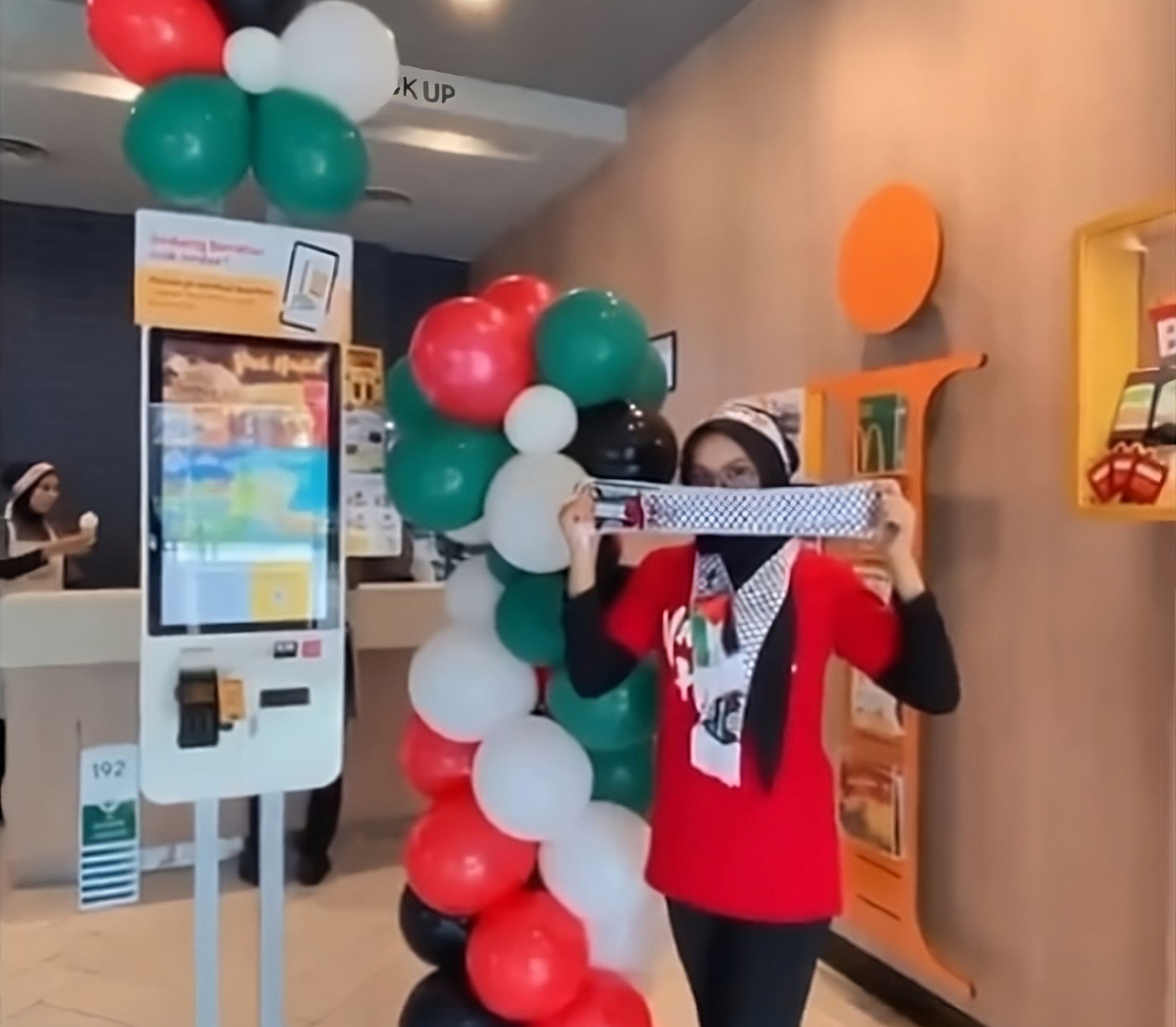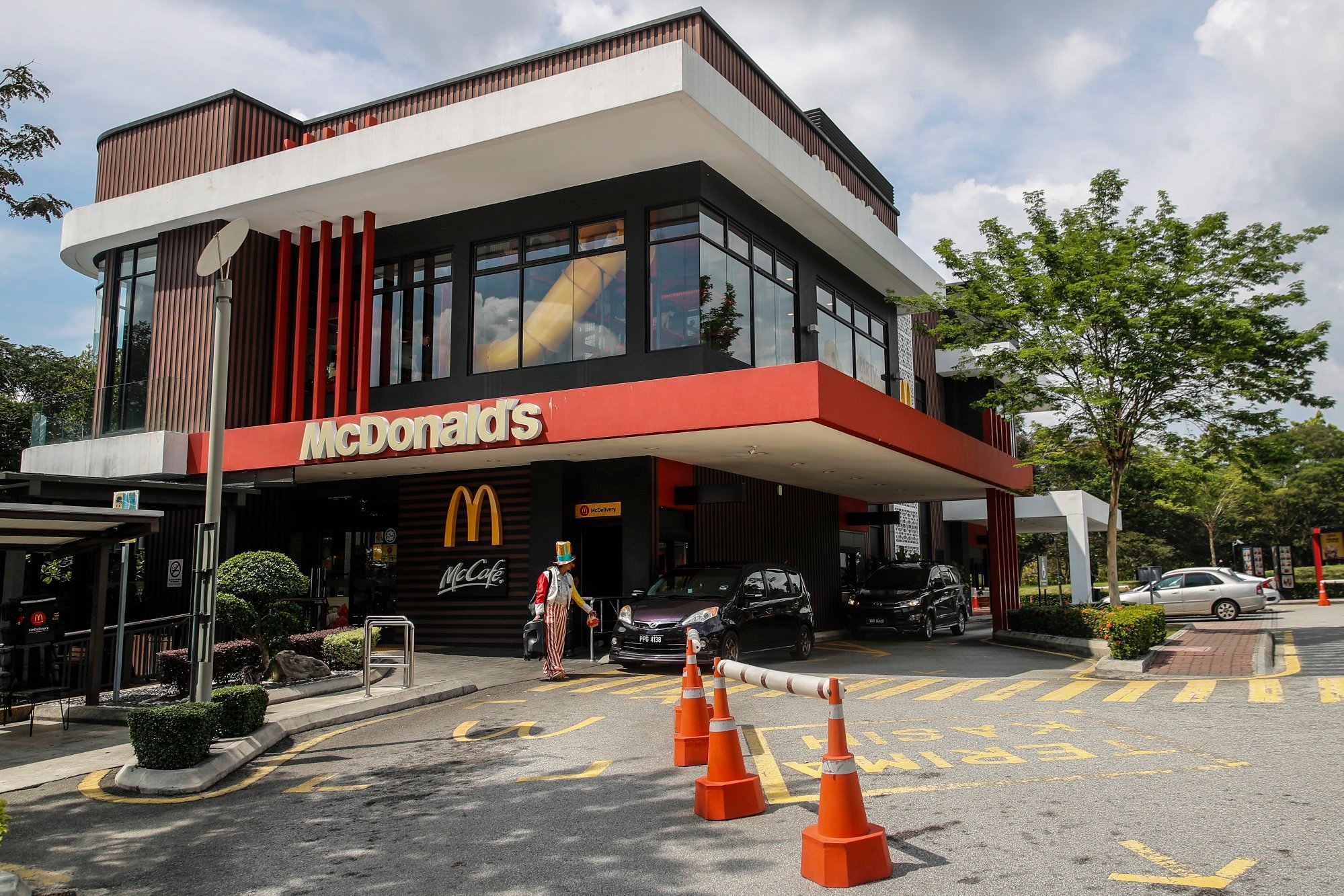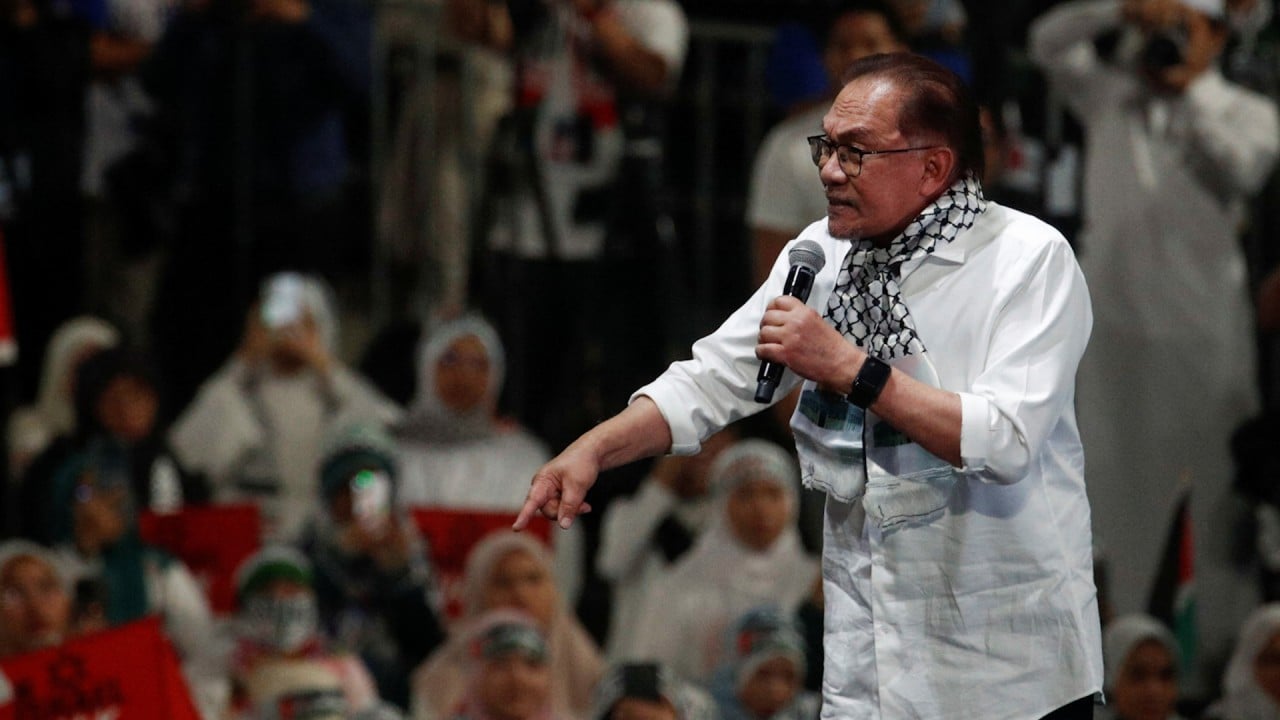Anti-Israel boycotts in Indonesia hit McDonald’s, Pringles, as Malaysians quit Singapore’s Grab over Gaza war
[ad_1]
When asked if she was sure if all the products on the list were made in Israel, Siti shrugged and replied with a common – albeit antisemitic – Indonesian conflation of faith and a state nearly 9,000km away.
“They support Israel’s occupation of Palestine in one way or another, or they are owned by Jews,” she said.
‘Dehumanising’: UN rights chief slams global surge in hatred amid Gaza war
‘Dehumanising’: UN rights chief slams global surge in hatred amid Gaza war
At least 9,770 people – including over 4,000 children and young people – have been killed by Israel’s relentless air and artillery strikes in the weeks since, according to the Hamas-run health ministry in Gaza.
A wave of posts showing Malaysians cancelling their Grab subscriptions and deleting the app from their phones – including Anwar’s daughter Nurul Ilham Anwar – swept social media last week after Chloe Tong, wife of company CEO Anthony Tan, shared photos of her family’s July trip to Israel on Instagram, saying how heartbroken she was by what was happening in a country with which she had fallen “completely in love”.
Grab responded to the backlash by saying it stands on the side of “humanity and hopes for peace and a ceasefire”, without mentioning either of the warring factions, while also sharing a statement from Tong saying that the Instagram post was personal and made before she had a full picture of what was happening.
“I am simply saddened and feel very helpless for all the innocent lives lost,” she said.
Malaysia PM slams West’s human rights hypocrisy in supporting ‘brutal’ Israel
Malaysia PM slams West’s human rights hypocrisy in supporting ‘brutal’ Israel
PT Rekso Nasional Food, the Indonesian licensee for McDonald’s, moved swiftly to stress the company was Indonesian-owned and unrelated to the Israeli franchise.
“Our sympathy goes to all the war victims,” it said in a statement on October 23.
Some McDonald’s branches in the country have reportedly encouraged staff to wear shawls and decorate using balloons in the colours of the Palestinian flag, while the chain rolled out huge discounts from late October.

Siti, the Surabaya homemaker, said she would switch to alternative products, mostly local, to show her solidarity as a Muslim to the Palestinians in their struggle for independence.
The boycotted companies must be “quaking in their boots,” she said, because all of them were “throwing themselves” at Indonesians with discounts.
Aan Anshor, a progressive cleric based in Jombang, East Java, said the boycott list showed that Indonesian Muslims did not distinguish between the actions of the Israeli state and Jewish people as a whole, pointing out: “I have a lot of Jewish friends and not all of them are Zionists.”
If such measures were sufficient to topple South Africa’s apartheid regime in the 1990s, surely we can do the same to Israel
The Palestinian-led Boycott, Divestment and Sanctions movement, which operates globally, has been promoting economic pressures as a means of forcing Israel to grant full independence to the state of Palestine.
“If such measures were sufficient to topple South Africa’s apartheid regime in the 1990s, surely we can do the same to Israel,” said Dina Sulaeman, a geopolitical analyst with the Indonesia Centre for Middle East Studies.
Economists say it was inevitable, given the growing awareness of global affairs in the internet age, that Indonesians would vote with their pockets on issues that matter to them.
“[The boycott] has an immediate impact on the pattern of goods consumption, though so far we haven’t seen a boycott movement that has lasted long enough to make a real dent [on Israel or its allies],” Gancar Premananto, an economist at Surabaya’s Airlangga University, told This Week in Asia.
“The longer it [the war] lasts, the bigger the momentum for Indonesians to do something.”
But Premananto also cautioned that the boycott could hurt the Indonesian economy and investment prospects, as “these multinationals are legitimate providers of employment in Indonesia, too”.
An estimated 3,700 people are employed at Nestle’s three Indonesian factories, while a further 4,000 or so earn a living at Unilever’s nine production plants in the country.
And not all Indonesians are in favour of joining the boycott.
“That is one long list I won’t be able to do, even if I sympathise with the plight of the Palestinians,” said Karina Malik, an urban professional from Bandung.
“We all do our bit in different ways, and I respect those taking part in the boycott. But my kids love to splurge on McDonald’s. What can I do?”

Jakarta-based financial analyst Adi Wijaya said the boycott had been tainted by domestic brands eager to exploit the public furore over Gaza to extract a competitive advantage.
“This explains why some local food franchises have made a show of not using boycotted products in their outlets,” he said.
Spicywon Korean Streetfood, a Bandung-based franchise, announced on its Instagram page that, in solidarity with the Palestinian struggle, it would stop using or stocking products made by Nestle, which it accused of “supporting genocide in Gaza”. The franchise declined to be interviewed by This Week In Asia.
‘Toxic’ narratives over Israel-Gaza war open deep divisions in the West
‘Toxic’ narratives over Israel-Gaza war open deep divisions in the West
There are also subtleties to the rules of a modern boycott.
Yulianto, who works as a cashier at Indomaret in northern Surabaya, said discount bonanzas may not have much of an effect in areas dominated by more devout Muslims.
“At my branch, women from different prayer groups take the boycott seriously and would shop together to ensure compliance,” he said.
“But when these women shop alone … sometimes they would snatch up discounts when no one is looking, and who wouldn’t in this economy?”
Meanwhile, for those unmoved by the social media-driven reaction to the conflict, the boycott has brought an unexpected boom.
“I’m just chuffed McD gives out 50 per cent discounts,” said Surabaya restaurant-goer Handoko Prayitno, while munching on his McDonald’s extra-spicy fried chicken.
This Week in Asia approached brands on the boycott list including KFC and Unilever but received no response. In a statement, McDonald’s Indonesia distanced itself from its Israeli counterpart, citing different ownership.
Additional reporting by Hadi Azmi
[ad_2]
Source link


